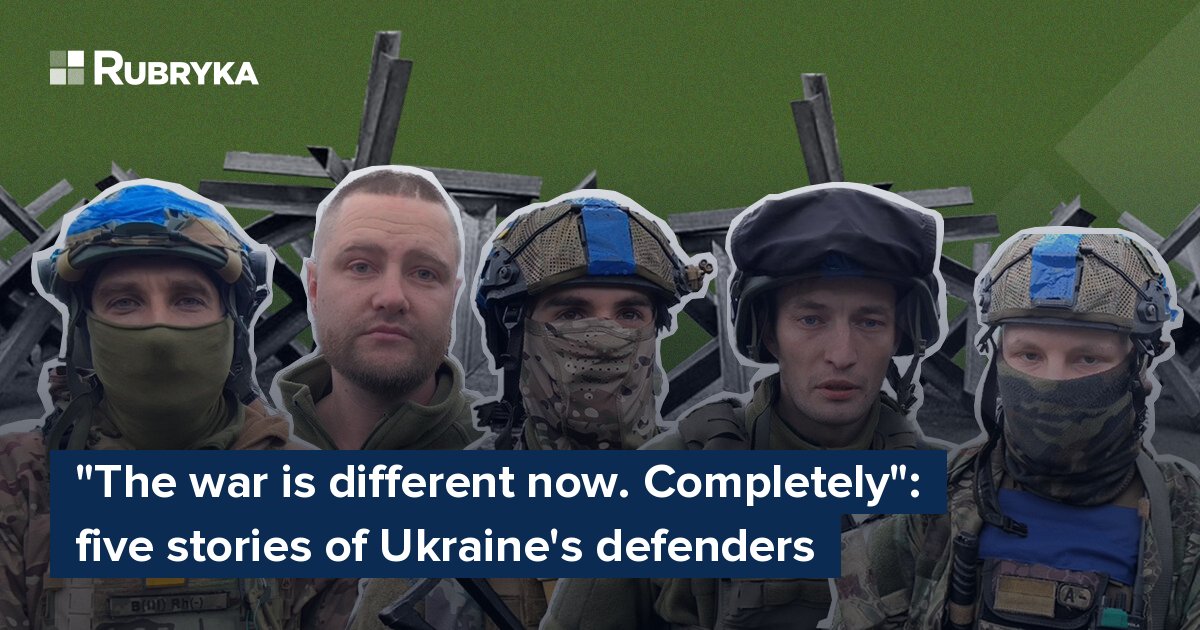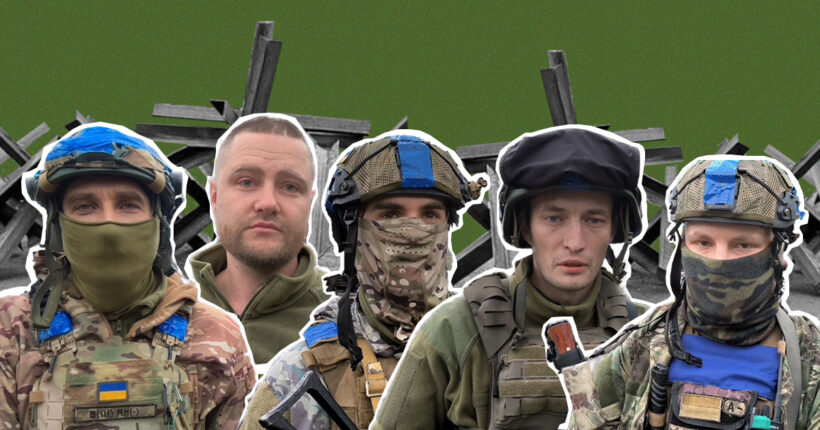
The faces of defense are different — women and men, soldiers and doctors, and volunteers. On the Defenders Day of Ukraine, we tell five stories of Ukrainian soldiers who, risking their own lives, protect the lives of millions of Ukrainians.
"This war tempered me"
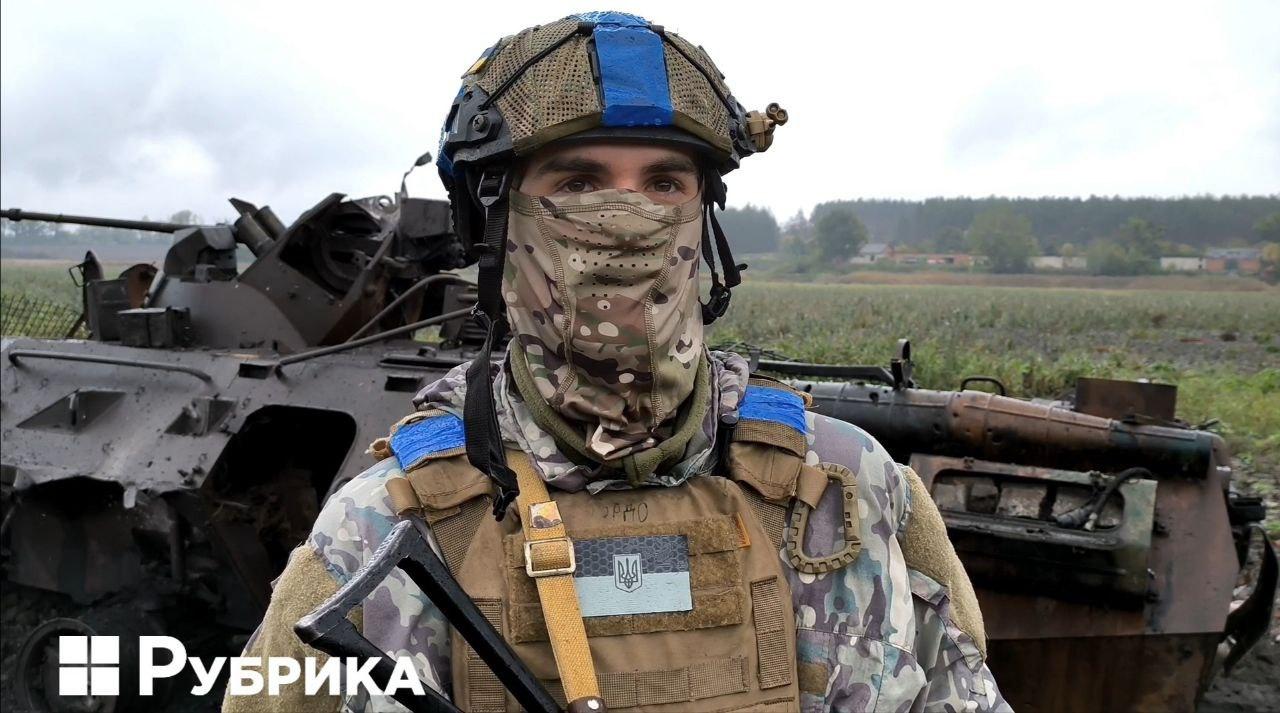
Denys is 22 years old. Before the full-scale war, he worked as a programmer in an international IT company, but he says that he felt its approach. In February, he was ready to defend Ukraine:
"On the night of February 23-24, I did not sleep with my girlfriend. There was news and information that made it known that today everything would begin. And so, I remember when the news broke that putin was live, and when I heard the phrase "special military operation," I knew what was going on. My girlfriend and I immediately left Kyiv to visit our parents in the Kyiv region, and we were already caught up in the main events there. We watched the news, heard explosions, incoming rockets, the work of air defense, and I understood that I had to go, I had to go to defend the country."
At that time, battles were already taking place on the outskirts of Kyiv's right bank, "Gostomel, Bucha, Irpin — russian troops were approaching Brovary." Denys understood that the left bank of Kyiv had to be defended.
"I am from the Darnytskyi district, from Poznyaki," the boy says. "And that's why I joined the territorial defense. I immediately wrote to the official Territorial Defense account on Facebook, inquired about the nearest place where I could come to mobilize, packed my things, and left.
One thing I can say for sure is that the life of all Ukrainians changed to "before and after" February 24. Such a life as it was before will never be again. The war affected each of us in different ways. And me personally. This war tempered me, my brothers, my family, and the entire Ukrainian nation in general. And that's how it had to be."
Denys has already had successful operations behind his shoulders. One of the most successful was when russian troops left Novoselivka, Donetsk region:
"We were ready for this and met them with an artillery adjustment. In the background (photo by Denys — ed.) is a destroyed BTR-82. This is one of the newest units of military equipment in the russian federation. This and others were burned."
What will you do after the victory?
"After the victory, I will gather the whole family, and we will just sit together with the family in peace and quiet."
"We are absolutely different from russists"
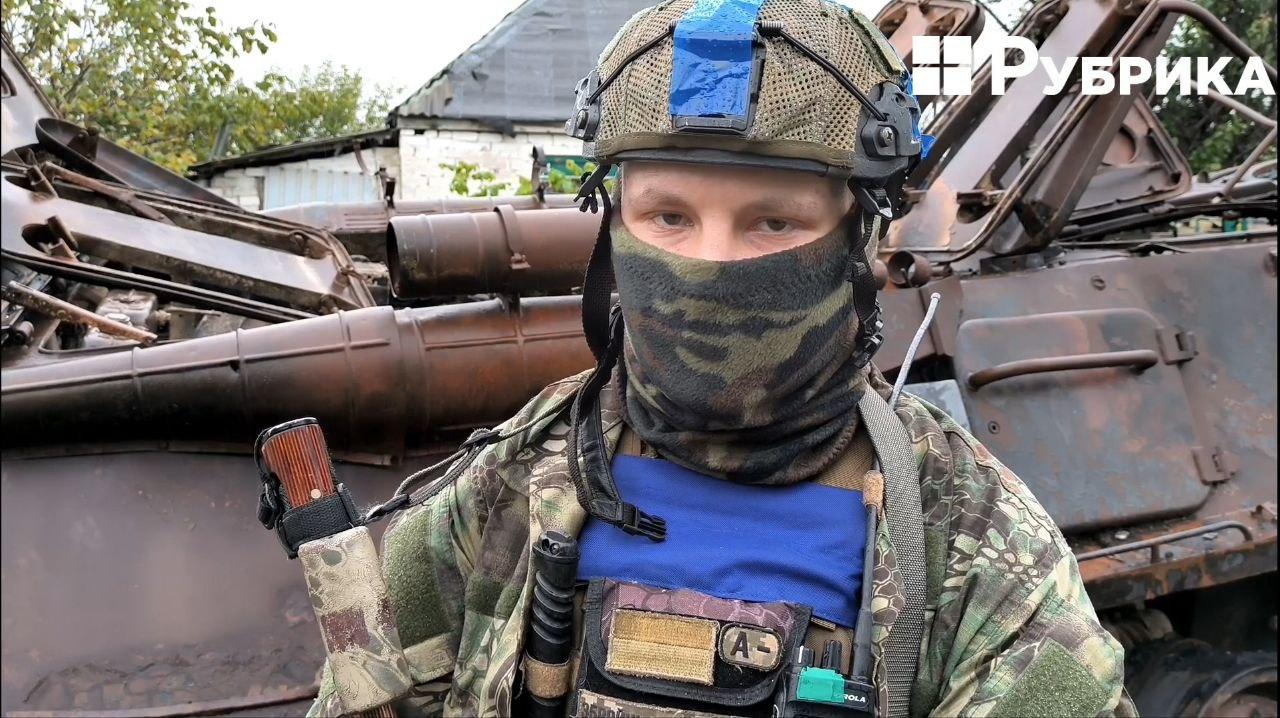
Pavlo, call sign Paul, 27 years old. In civilian life, he is a leading specialist in the analytical and calculation sector of the Department of Municipal Security. Like Denys, the man felt the approach of a full-scale attack by the russians.
"Of course, I prepared for a full-scale war as much as possible because I had a full feeling that it would happen sooner or later. On the day when the first explosions rang out, I did not feel anything too disturbing — more cold judgment and one question, whether everything I had prepared the day before in the emergency suitcase was there.
And already at five in the morning, I grabbed my backpack, put on my uniform, and went to the assembly point. At six o'clock, I was already at the assembly point. The main points that I would note during the time I am in this war are that I am convinced that the Ukrainian nation is really strong and invincible. Despite the years, generations, any diseases, even limited unfit ones go to the army and do their job. And the most important thing that I saw is that we are completely different from muscovites. Because Ukrainians take a balanced approach to any work, decisively come to help without hesitation, do not abandon their own, and help civilians. Even if there is a risk that these civilians were somehow related to the russists. We are one nation; we are there for each other. This is our strength. This will be our victory."
Pavlo recalls one night when the occupiers tried to quietly leave the settlement in the battalion's area of responsibility. They did not succeed – scouts and other units quickly discovered this attempt, and with the help of artillery, and correctional officers, their escape attempt was reduced to zero.
"At the same time, thanks to the trip to the place of that destroyed column, I realized that even during the heavy attack on them by our artillery, they did not try to help each other in any way. It can be seen that everyone was there for themself. They all scattered. They abandoned equipment, abandoned weapons. People are completely unmotivated; they came here like some kind of invader, stupidly for food, clothes, violence, and some pleasant feelings from it."
What will you do after the victory?
"I really want to go fishing (laughs — ed.); I really want to restore my slightly overgrown garden in the village. Although I am more of a city person, I realized during this war that such benefits of nature, which those orcs tried to destroy, should be really used and enjoyed every day, every hour."
"We have to win. What's next — we'll see"
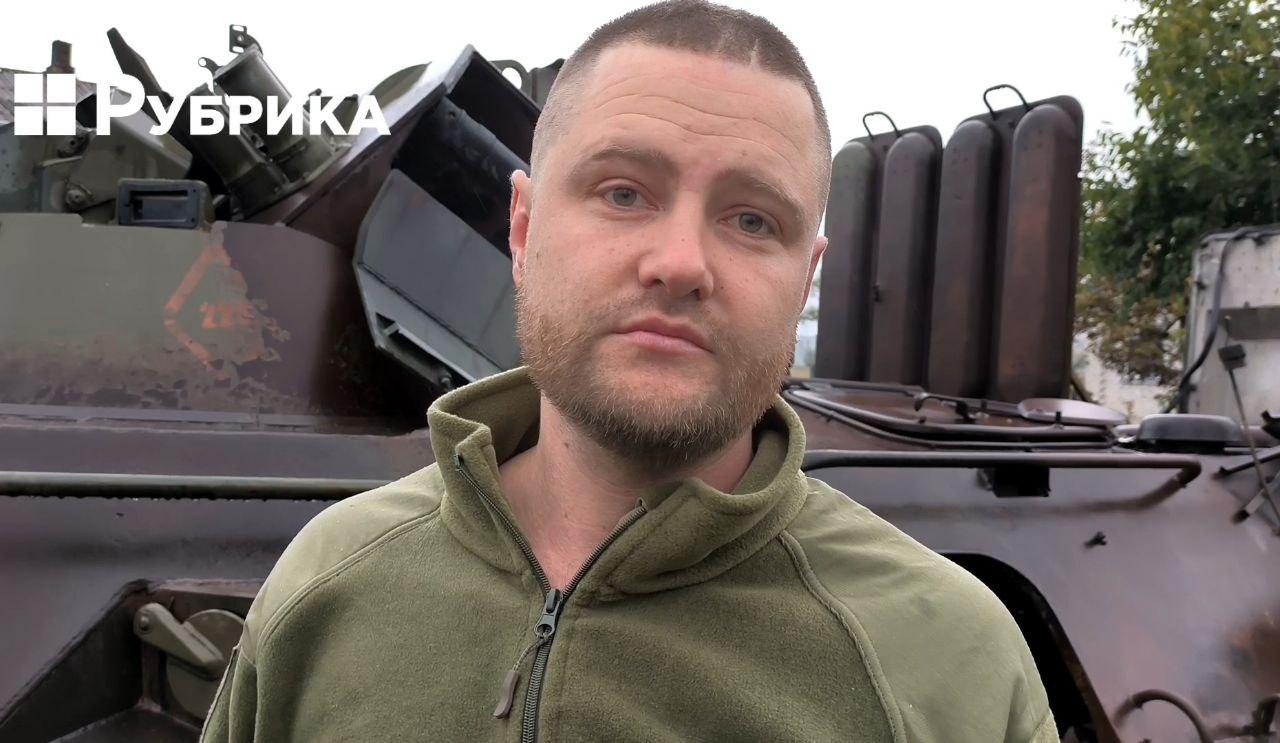
And this is Mykhailo, call sign Papai.
"Papai – because I spend my whole life on the water, on the river, on a boat, fishing. In civilian life, I was a construction worker and a foreman. I have been in the war since the second day of the war," the man says about himself.
"On the 24th, I got into the car and immediately went to look for a place to arm myself. That's how he got into the Territorial Defense battalion. There was no panic, no fear. I had only one question – to find where there will be people who will manage all this and everything will be fixed. And I found it. Everything is cool".
Mykhailo remembers how the battalion forced the river – he says there was a minimum of water in it then, but it had to be done very quickly under mortar fire. Therefore, they decided to take boat motors, but they needed repair. Here, Mykhailo's experience with boats came in handy – he started repairing them. The man says that while making repairs, "mines flew a little." He says it easily as if it were simple. And yet:
"We hid a little, of course. But the mines were flying 50 meters from us, exploding. Mines are audible, so you can predict where they could fly. If you hear it, it's not flying at you.
The motors must not have been used for a long time, and the guys don't know how they should work. The candles were cleaned, they saw the oil in the gearbox, and they saw the valve. There is such a secret in the motor. If there is no special "adjustment" for the gasoline tank, gasoline is not pumped. Apparently, it was not there. They haven't figured out how to install it. We found this thing in the garage, inserted it, and everything worked. Nothing special was broken there. You just had to know what to do. That's it. Knowledge".
What will you do after the victory?
"I will go to my mother, to my child. We'll see then. I am not making plans yet. We have to win. What's next — we'll see."
"The war is different now. Completely"
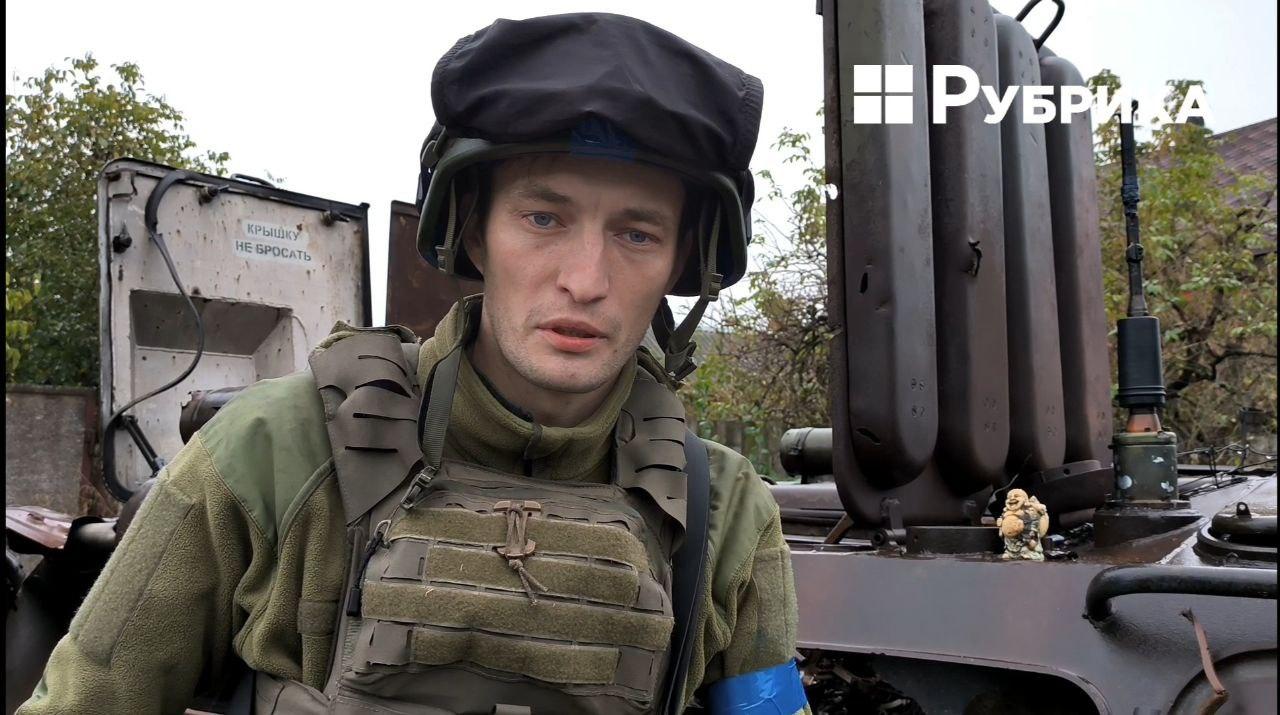
Vadym is 31 years old. Before the full-scale war, he worked as a DevOps engineer. But before that, he already had military experience:
"From 2015 to 2016, he participated in an anti-terrorist operation. Together with the units, they held sections of the front from Stanytsia Luhanska to the Avdiivska industrial zone in different periods. Accordingly, he was a platoon commander and directly participated in capturing the Avdiivska industrial zone with units of the 16th motorized infantry battalion." Currently, Vadym is serving in the 126th Territorial Defense Battalion, engaged in communication, and ensuring the management of troops.
"Honestly, until February 24, I was completely engaged in civilian work; I was completely fascinated and absorbed by it. I tried somehow not to think because if they don't attack, then they won't. And if they attack, then that's what's going to happen. We must take up arms and go to defend Ukraine. Accordingly, in the first hours of the war, I was called up by the Military Commissariat. But since my battalion had already participated directly in the Sumy region's battles, I could not get to them. I reached the 126th battalion, where my comrades were serving. I stayed and did business here; I try to bring benefit here."
Vadym says that when he first came to the mission area, he "didn't recognize the war." He says this because there has been a very high saturation of aerial surveillance — for example, eagles:
"Just in previous experience, the flight of an eagle was such an extraordinary event. And now, the passage of enemy UAVs is the norm. Earlier, aviation was not used. Now the enemy is using aviation. And artillery shelling is now 100 times more frequent than during my previous experience. That is, if earlier my units directly participated in a direct firefight with the enemy, including a shooting battle, now the main burden of the war falls on the artillery. That is a different war. Completely".
The main difficulty now, according to Vadym, is that the enemy widely uses artillery. Accordingly, communication systems must be built in such a way as to make the impact of enemy artillery on communication systems as impossible as possible:
"Well, for example, the well-known wire communication suffers greatly from the enemy's artillery. The enemy also uses means of radio-electronic intelligence and radio-electronic warfare. Accordingly, we also have to consider this in our work and do everything to make it as difficult as possible for the enemy to listen to the communication or, God forbid, affect the possibility of using the means of communication."
What will you do after the victory?
"After the victory, I will go home to my family, my daughter, and my wife. Then I will do what I love."
"Fear begins to recede"
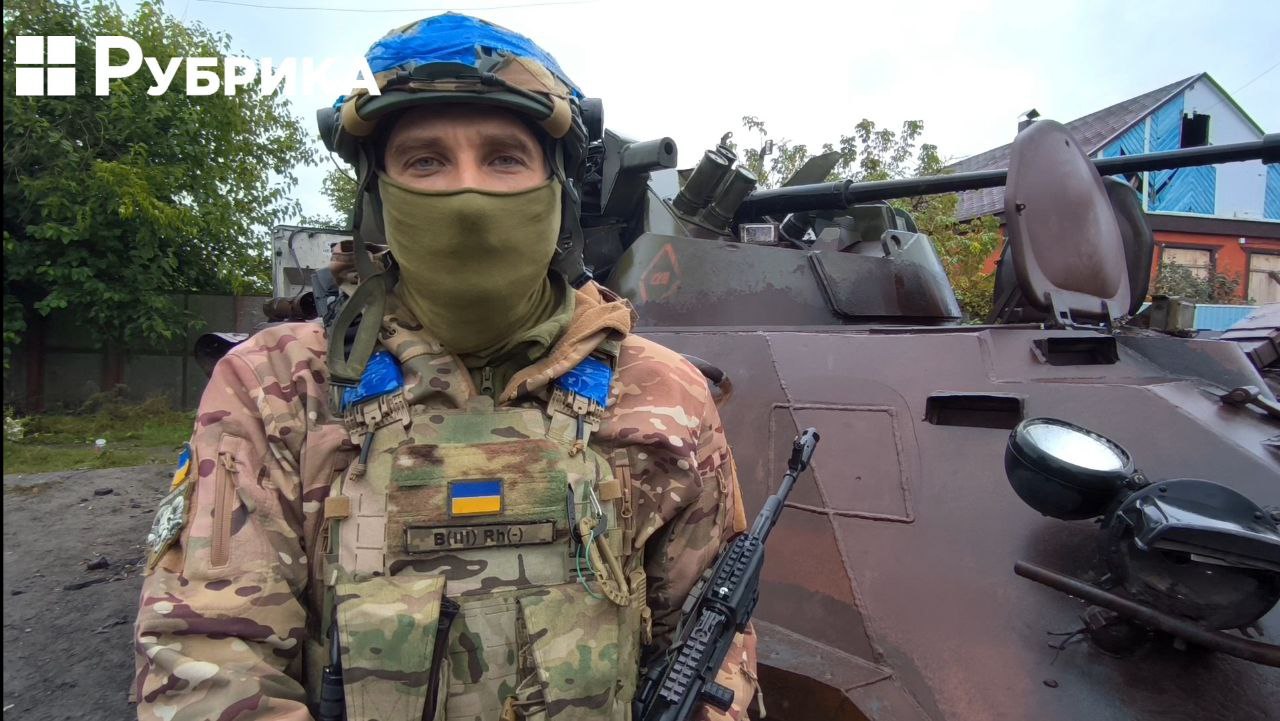
Oleksandr is 44 years old. In civilian life, he worked in the field of tourism. Even though he had no military experience, he understood that a full-scale war was possible.
"It was probably necessary to study history and understand that, in principle, it was all a consequence. We waited for it and lived in it for hundreds of years. And what our ancestors, such as Sahaidachny, did not do, we needed to do. That is, it was like a volcano that was sleeping, and now it has exploded in our time," the man thinks.
"The first feelings on February 24 – here it begins. And everything that was prepared will all be needed. And the fact that it is necessary to solve the issue of family safety and join the ranks.
It became clear that society might finally wake up from the illusions and infantilism associated with our attitude toward our neighbors. And that, perhaps, after all, what is happening is a certain plus, which will give an impetus to the development of our state. That is, we will no longer have such a number of people who will consider our neighbors as friends. And this will prevent society from splitting in the future. And it will work for the good of our country."
Oleksandr says that the most memorable part of military life is that no matter what conditions the soldiers of his battalion find themselves in, they still do not lose their motivation, positivity, and support for each other.
"And the fact that we are charged to reach the end and to our victory," adds Oleksandr. "Every operation is a vivid episode. I can tell one, let's say, funny story. While working and firing… Although, no, it's probably not for the camera. It was interesting to see our work and what is happening from the side, how the enemy is fussing, does not understand what to do, a certain incoherence of actions is noticeable."
And then he remembers another episode:
"One day, we worked, found targets, and worked on them, and then we heard the sounds of a helicopter at some point. One of the boys says: "That's ours." After that, rockets began to arrive. We all reacted as quickly as possible and took cover. Then, after two rounds, the work was finished, everyone sat down at the same time, and everyone silently smoked. After that, we all started laughing. That's it. The moral here is that if you have the motivation and you understand what and why you are doing it, fear begins to recede."
What will you do after winning?
"I really want to see my relatives, hug them. And perhaps, it is possible to explain to those who still do not understand that happiness is in moments, and you need to appreciate every minute, regardless of what is happening around you. We create moments of happiness for ourselves. And you need to create them for yourself and for others. And then we will become a flourishing, fertile, and glorious Ukraine, where it will be pleasant to live."
Newsletter
Digest of the most interesting news: just about the main thing



